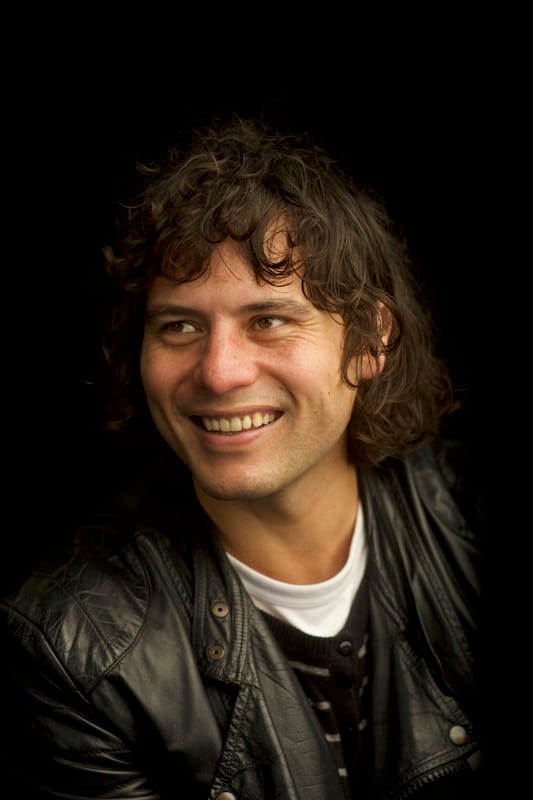How I Review: A New Series
The introduction for a new series (for paid subscribers only!) of in-depth interviews with New Zealand critics.
A few months ago, I was sitting at an Auckland Phil concert, near a man who was clearly reviewing the show. The telltale sign? He had the score on his lap, and was diligently writing notes on it throughout. I wasn’t close enough, or nosy enough, to try get a sense of what exactly he was writing, but it couldn’t be more obvious that he was reviewing.
I immediately went, “Oh, that’s not how I would do it.” Even if you put aside the fact that I couldn’t read a musical score in the first place, I don’t have the ability to engage with a show while simultaneously taking notes, and I’d feel self-conscious about being observed taking notes or potentially distracting other people in the audience. If I was reviewing that same gig, I would probably focus more on the experience of the performance, as I don’t have the education or training to engage with classical music in that way.
This reviewer, obviously, does things differently than me. He also, obviously, knows this particular artform more than I do. It got me considering, however, that in my 15 years of reviewing I’ve never once talked to somebody else about how they review something, be it a play, a book, a film, a game, a classical music gig, anything really.
I know my own practice and process inside and out at this point. I take a lot of notes. If I have the luxury of being able to take them in the moment, I do, and if I don’t, I’ll jot some quick thoughts down as soon as I can. I’ll generally try and review something as close to my experience of it. If I have the opportunity to do prep work like research, I’ll do it, whether that be reading the script of a play or learning more about the artists involved.
That’s not how everyone does it.
Additionally, I have a pretty solid grasp on my own philosophy around criticism. I believe it should act as a bridge between art and audience. If the artists involved get something out of a review I write of their artwork, that’s nice but absolutely not the goal of anything I write. In saying that, I believe that artists can get a tremendous amount out of criticism of art in general, be it by creating it or consuming it.
That’s also not how everyone thinks about it.
It’s a weird irony that criticism is an opaque craft, given how public facing it is. That opacity leads to a lot of misunderstandings, which in turn lead to stereotypes. To draw one out of nowhere: Critics are bitter, disillusioned, wannabe artists who exist solely to rip apart works of art in exchange for free tickets. In my 15 years, knowing somewhere between a dozen and a hundred critics, I can name maybe one who fits that stereotype. (There’s always one.)
Most critics I know are thoughtful, enthusiastic and well-read people who generally do it for love of the form. It’s rare for a critic to be able to discuss how they do what they do, why they do it, or what they think about it. We don’t even have enough platforms for criticism in the first place, so it makes (bleak) sense that we don’t have many, if any, for people to talk about criticism.
So that’s why I’ve decided to start this series with the goal of talking to critics about [gestures broadly] all this.
The initial run of this series is going to involve five reviewers – including a theatre reviewer, a books reviewer, and a visual arts reviewer – talking about their practice, their process, what they think the value of criticism is. It’ll run every Friday, starting this week.
It’s going to be for paid subscribers only initially! I’m not sure when I’ll let each interview out from behind the paywall, but this kind of work involves a fair bit of journalistic legwork, and while I hate a paywall as much as everybody else, I hate it slightly less than I love financial stability. So if you want to support the series, the newsletters, and me in general, please consider subscribing. (If $$ is an issue and if you know me personally, feel free to hit me up, however. This time of year is not when anybody is the most flush, and if you’re the kind of nerd who is interested in this kind of stuff, far be it from me to keep it from you.)
Otherwise, the first edition of this series will be in your inbox this Friday.
Writing and reporting takes time, and if you want to support the amount of time it takes (and ensure that the scant amount of meaningful coverage of local art can continue), please considering supporting Dramatic Pause with a paid subscription ($8 p/m, $60 p/a) and if you can't afford a paid subscription, please share the work with your networks!



Member discussion